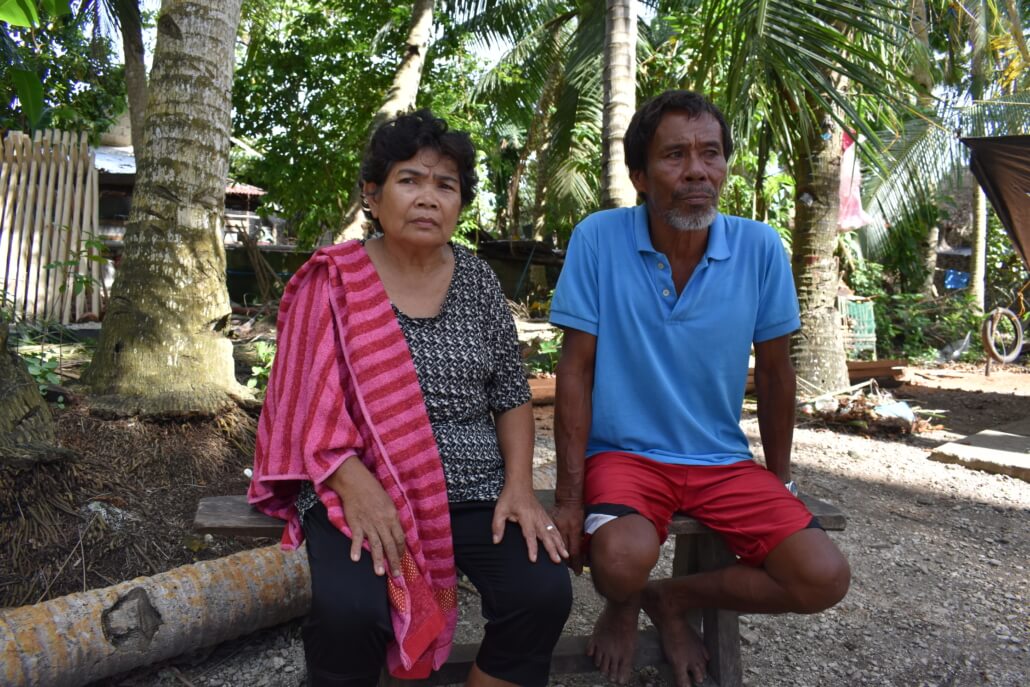Water, Hygiene, and Hope: The Morales Family’s Recovery After Typhoon Opong (Bualoi)
PALANAS, MASBATE — After Typhoon Opong (international name: Bualoi) devastated their home in the municipality of Palanas, Masbate, on the night of September 26, Diolito and Lorna Morales faced unimaginable challenges. With only a small kitchen left as their shelter and the prices of basic goods rising, ensuring that their five-year-old grandchild and family had enough food, water, and hygiene essentials became a daily struggle.
When Typhoon Opong struck their community, Diolito (59) and Lorna Morales (64) thought they had already endured the worst, but this time was different. “The wind was so strong it felt like it was tearing our house apart in the middle of the night,” they recalled. Coconuts and branches fell all around them until a tree finally crashed onto their roof. As water quickly rose to their knees, they fled to their son’s house nearby to seek shelter.
For three long hours, the water kept rising. “All I could think was, if the typhoon doesn’t stop, there won’t be any houses left,” Diolito recalls their experience. When morning came, they sadly realized that their home was destroyed. They stood in front of what was left and cried. “I was sure I was not going to be able to recover,” he said. “My fishing net, I can fix that. But my house? How can I fix it without any income?”
In the first days after the typhoon, the family felt lost and powerless. They didn’t know what to do first—whether to repair their house, go fishing, or try to dry what was left of their belongings. Life since then has been a daily struggle, especially for their five-year-old grandchild, who lives with them in their household of seven and had never experienced anything like this before.
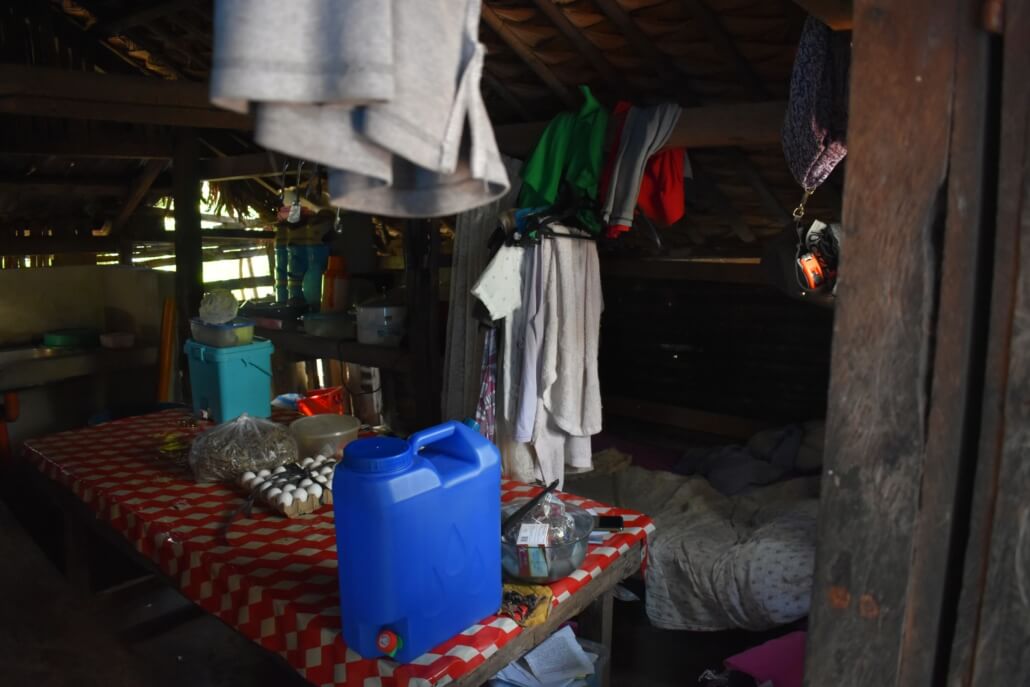
In photo: Diolito and Lorna Morales’ kitchen, where they have now been sleeping since their house was destroyed by Typhoon Opong. Photo by Martina Vercoli for Action Against Hunger.
Diolito and Lorna now sleep in their small kitchen, the only part of the main house that survived the typhoon, and which was once a separate structure. The rest of the family stays in their son’s house nearby, as there is not enough space in the kitchen to accommodate everyone.
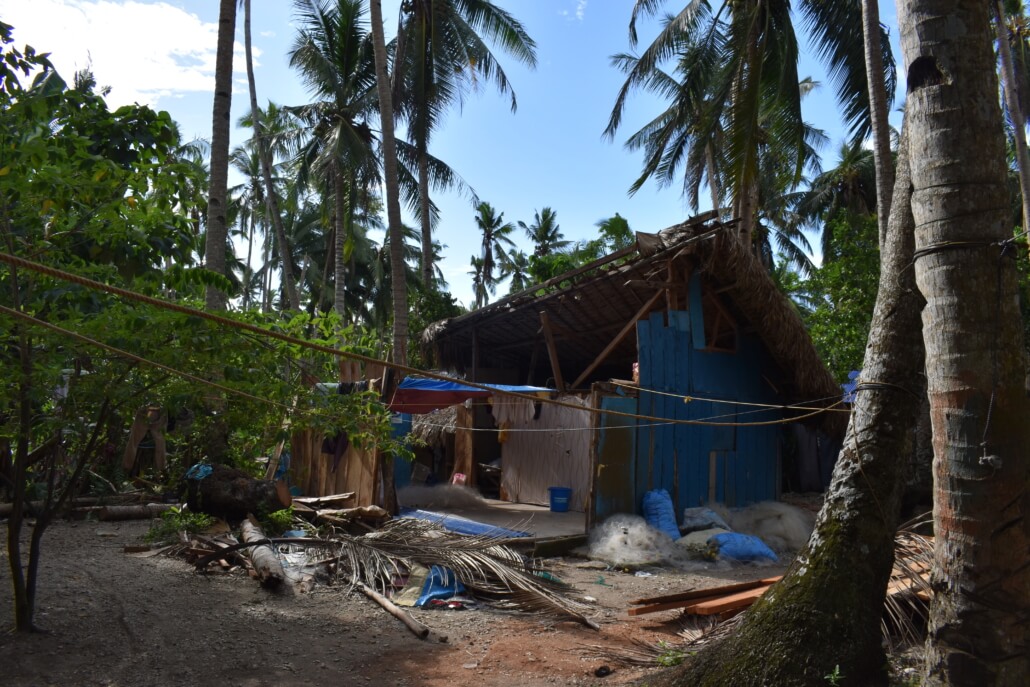
The family’s income has been heavily affected as well. Diolito now goes out to the sea twice a day to fish, hoping to bring home enough to feed everyone. Before the typhoon, he earned around 20 pesos a day, but now he often earns only 5 or 10 pesos. Lorna, from her side, does her best to care for everyone at home, especially their little grandchild. “The little one feels the hardship too,” mentions Lorna as she looks at him playing in the courtyard. “I always feel like we have to work even harder for him, to give him a better future.”
Despite a government-mandated price freeze on basic commodities during the state of calamity, some stores in their area still doubled their prices, even for water. The family buys drinking water from a local refilling station and uses tap water for cleaning and cooking. Since the typhoon struck their community, food and other essentials have become increasingly expensive. This is why, when aid arrived, it brought them much-needed relief.
“When we received the hygiene kit, it brought us hope and relief during such a difficult time” states Lorna. Inside, there were soap, shampoo, towels, toothbrushes, blankets, and other essential sanitary and cleaning items. The hygiene supplies they had lost in the storm — items that had been hard to find in nearby stores — were finally within their reach.
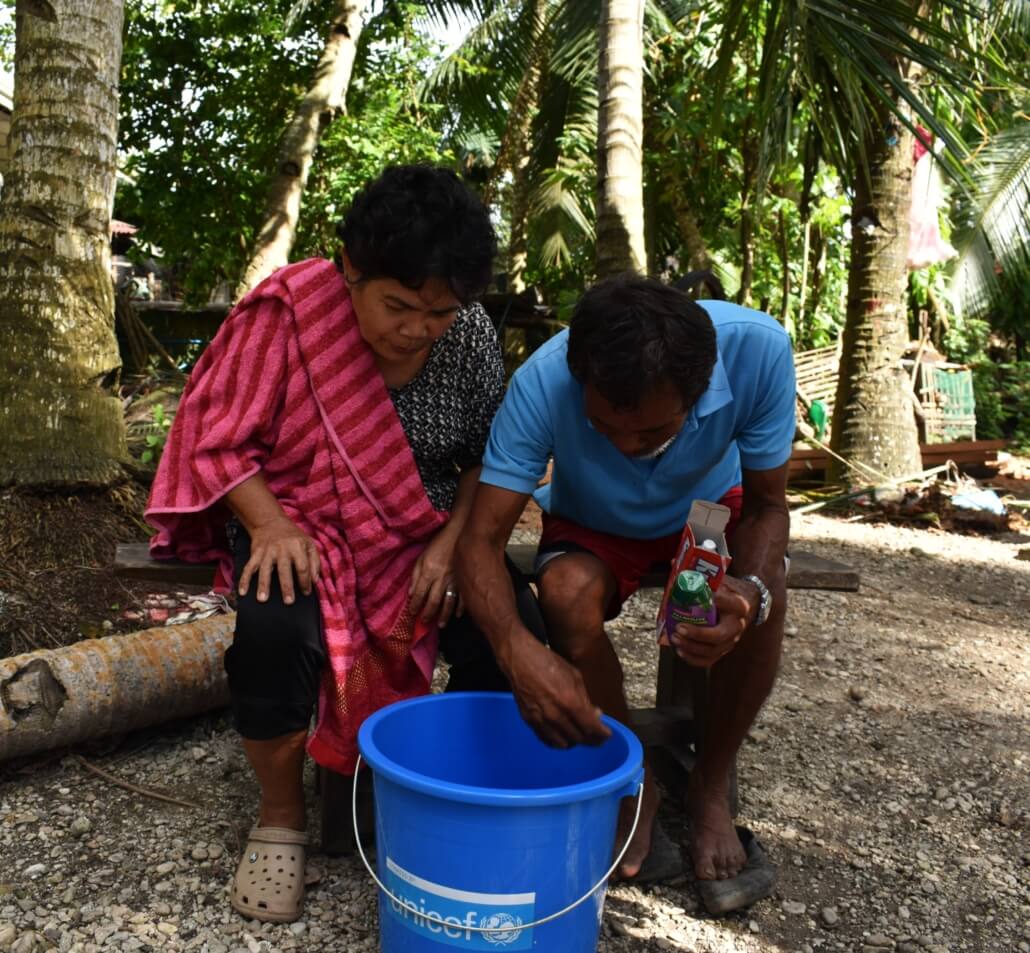
For Diolito and Lorna, receiving the kit lifted a huge weight off their shoulders. Knowing that their family’s hygiene needs were covered meant they could redirect what little money they had toward putting food on the table or buying materials to rebuild their home.
Lorna, wrapped in a blanket from the hygiene kit, shares, “I still haven’t had the time to properly wash all our belongings that were soaked during the typhoon, especially our towels and blankets. I don’t have much time during the day since I have to take care of my family.”
The whole family uses the soap and towels from the kit, but it’s the toothbrushes and towels that mean the most to them. These items have been difficult to find in the community since the typhoon. For their grandchild, these small things brought back a sense of normal life and a feeling of being cared for.
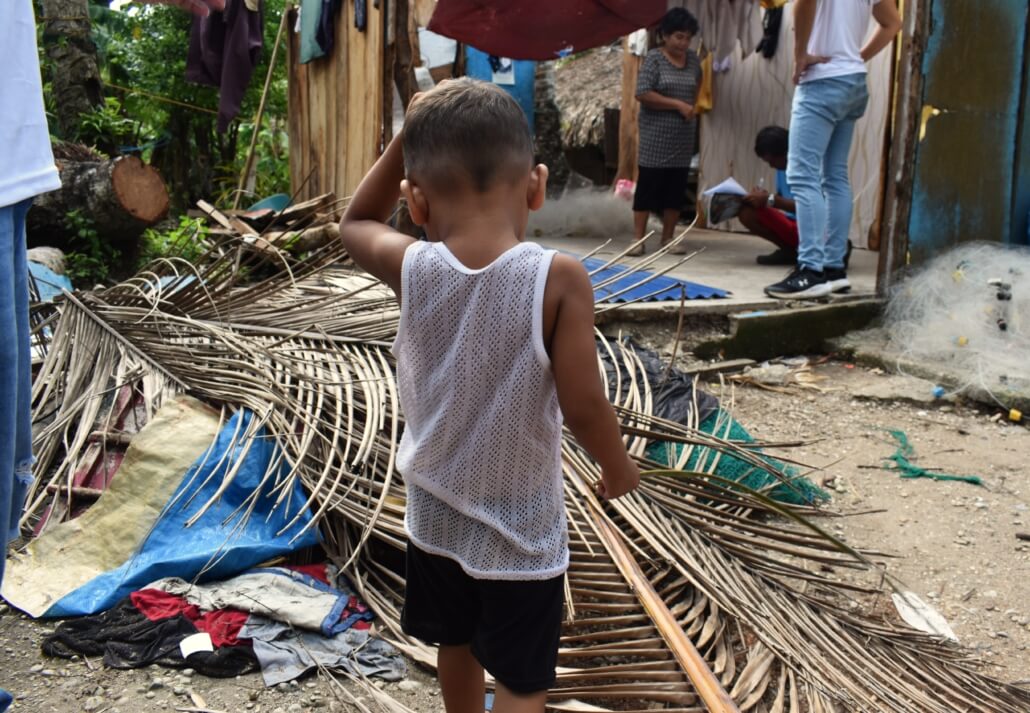
In photo: Diolito and Lorna Morales’ grandchild stands in front of their destroyed home. Photo by Martina Vercoli for Action Against Hunger.
Their little one benefited directly from the shampoo and toothpaste. Lorna said it made her happy to see the child clean and smiling again, despite the despair around them. For a family that lost almost everything, these small things give them back dignity and hope. Even though the kit was meant for their household, they also chose to share some of the items with their son’s family living nearby. “It is the least we can do … to help our family by sharing,” admits Diolito proudly.
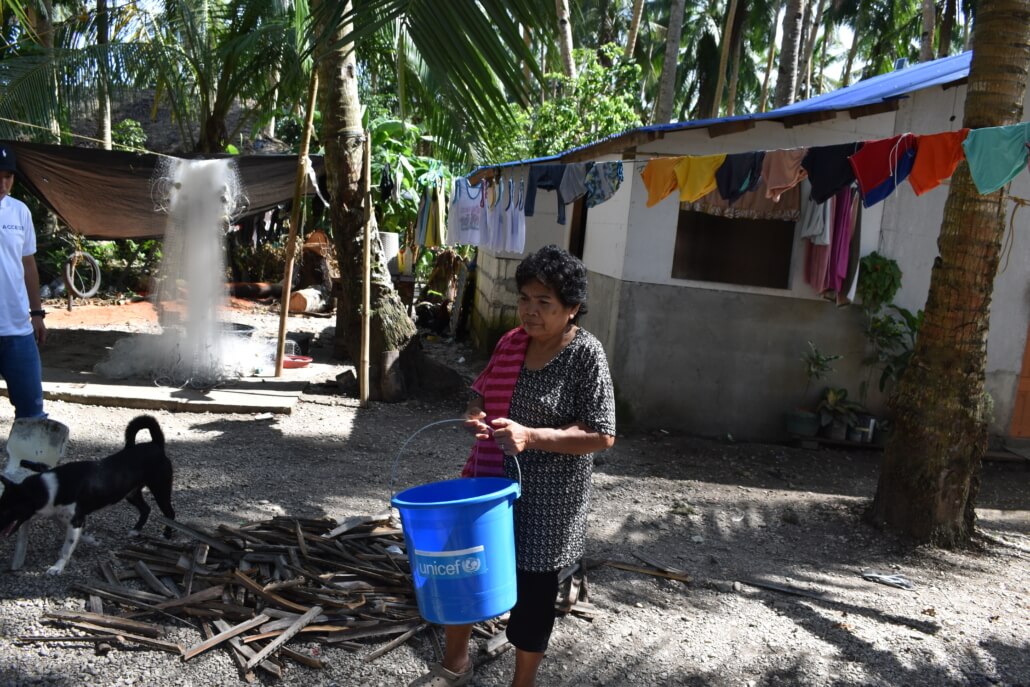
In the photo: Lorna Morales walking with the pail they received from the hygiene kit from UNICEF. Photo by Martina Vercoli for Action Against Hunger.
For Diolito and Lorna, the support meant much more than supplies. It meant that their grandchild and their entire family could stay clean, healthy, and safe even after the strongest typhoon they had ever experienced. “It is the first time we received such aid.” They said. It brought hope for the next generation and reminded them that they were not forgotten.
Written by Martina Vercoli


